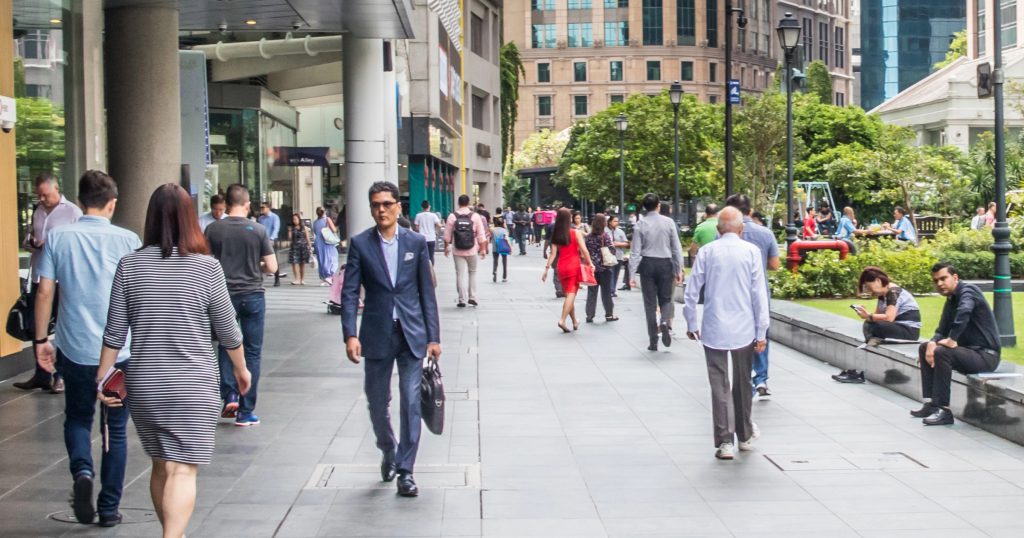With the arrival of 2025, we’re entering the second half of the decade which started with the worst pandemic in a century.
Fortunately the economic situation has greatly improved in Singapore this year, with stabilising prices and strong economic growth as real GDP growth is expected to hit 3.5% or more—an excellent result for a highly developed economy.
And the good news doesn’t end there as the next year forecast for the city remains optimistic, with another expansion of 2.5% or more, which is bound to boost employment as well.
Speaking of which, ManpowerGroup, among others providing measurable information on the local labour market, has recently published updated forecasts for Q1 of 2025, according to which 45% of employers are planning to increase hiring, against just 20% anticipating a drop.
This adds up to a positive net employment outlook (NEO) of +25%, meaning that more jobs should be available than are expected to go away.

Such a synthetic figure, however, is not enough to provide guidance as to what to expect in the coming months. We need to know who those employers might be, the industries they represent and the opportunities they may provide.
So, let’s break down what we know.
Who is hiring, again?
About 45% of Singapore employers (with a reported margin of error at around +/- 3.9%), representing mostly larger companies, with NEO hitting nearly 50% for businesses employing up to 5,000 people.
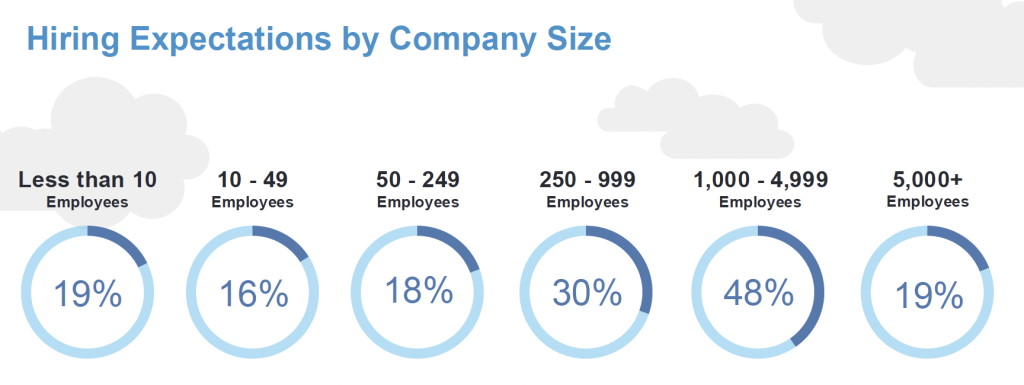
This is rather excellent news since it’s those large employers who tend to provide more attractive career paths, especially in a place like Singapore which is a hub for sophisticated services rather than cheap manufacturing.
The most optimistic industry is transportation, which is receiving a boost following pandemic-induced disruptions of both falling and soaring demand for its services, as a net of 67% of businesses are looking to hire in the next few months.
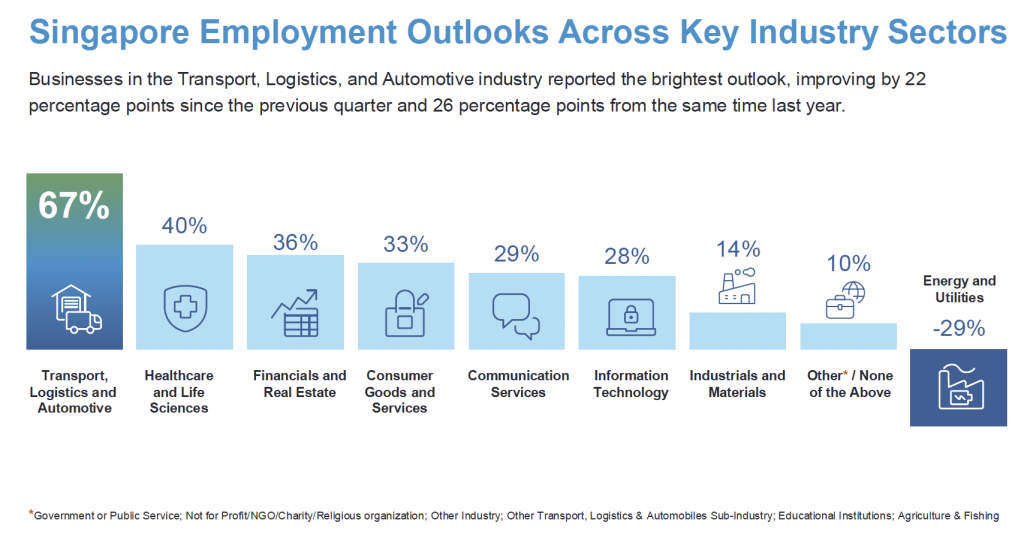
And logistics is a litmus test for the health of the economy—especially for one as dependent on trade as Singapore.
High demand for transportation suggests that other businesses are doing well, if they have things that need shipping, which also increases their demand for other services (finance, tech, sales, marketing).
And indeed, the outlook is strong for most industries, with healthcare, finance, consumer goods, communications and IT all reporting above average NEO of around 30 to 40%.
Given that some companies are always looking to trim their headcount, it means that around half of the businesses in those areas are still looking to do just the opposite: employ more.
There is only one sector where employment outlook is negative (and quite significantly), continuing its negative run from Q4 of this year—and that’s energy & utilities.
If that’s where you’re employed, then keep your ear to the ground and consider the alternatives in growth industries. Just in case.
Salespeople wanted
Another recent survey, this time published by Randstad, reveals specific positions within businesses that employers will be seeking to boost in 2025, with those contributing to the bottom line leading the ranking of responses:
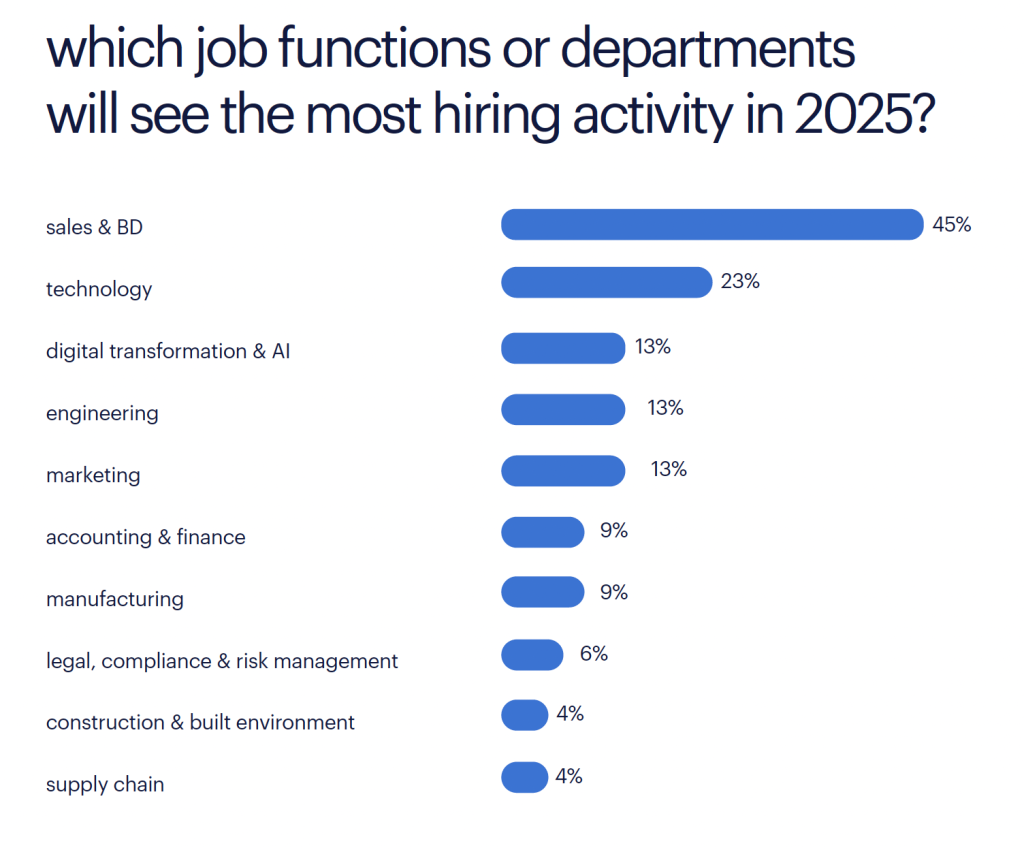
Close to half of the surveyed businesses are anticipating to employ more sales and business development people, perhaps in the hope of capitalising on optimism about the Singapore economy.
Technology is important for just a quarter of the respondents, with AI coming in third at just 13%. It may seem that there’s a fundamental transformation upon us, but businesses are taking a more cautious approach when it comes to employing dedicated staff to handle it.
MOM reports positive signs as well
While the Ministry of Manpower doesn’t publish detailed forecasts, the trailing, real data on the labour market it regularly reports suggests that the optimism is reflected by reality.
In its recent report on Q3 hiring trends, it indicated a doubling of pace of hiring between subsequent quarters, including 4,000 resident hires in sectors like IT, professional and financial services.
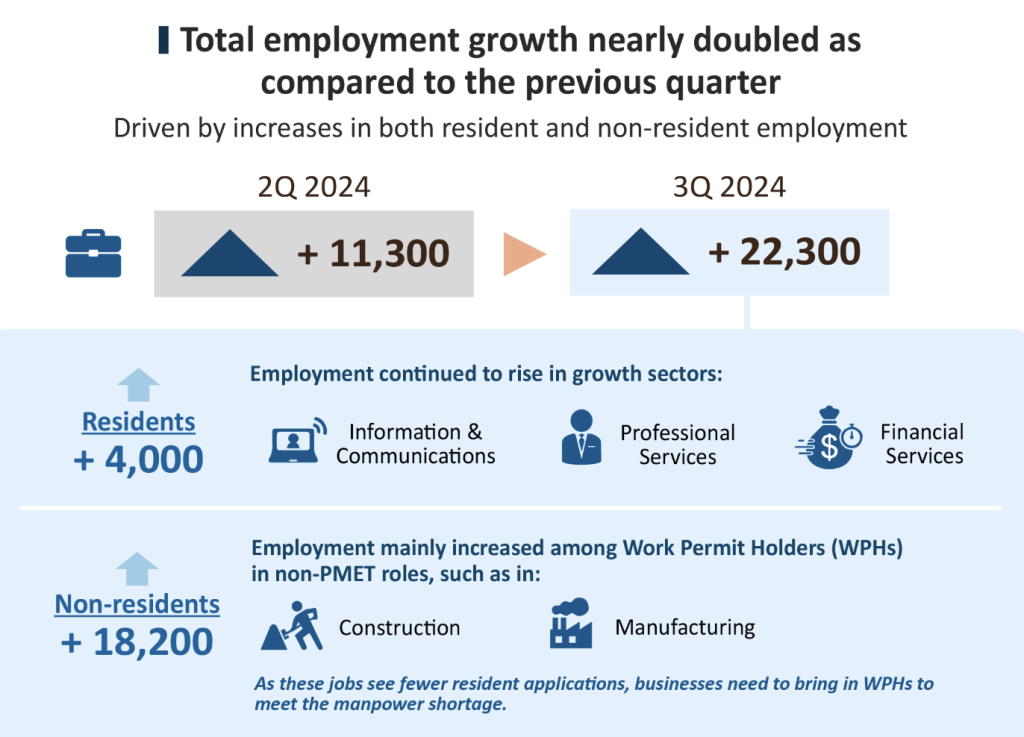
As usual, non-resident employment is considerably higher, but limited mainly to jobs that Singaporeans don’t want to do.
Big companies looking for money
All in all, the picture that these data points paint is that 2025 is going to be a year during which larger employers will be looking to capitalise on the opportunities that the local economic growth is going to bring, focusing on employing people who can bring in new business or are able to contribute to its technological competitiveness.
Artificial intelligence does show up on the radar, but doesn’t seem to have quite the profound impact on hiring decisions—either yet or not anymore, as we’re still waiting for practical breakthroughs the new technology can introduce in the office, calling into question claims of some that “AI can already do all the jobs.”
For the time being, it seems that 2025 is not going to be the year you should worry about losing your job to a smart chatbot.
Featured Image Credit: iStock


